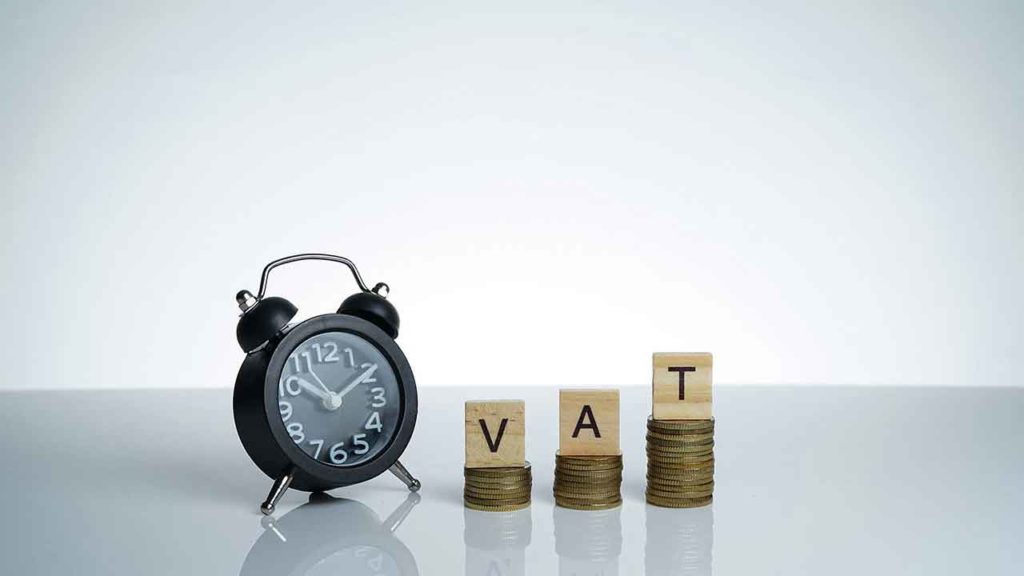VAT – Basics for small businesses
VAT has only been in force since 1973 however it remains one of the major sources of tax for the Government. But what does this tax mean for a small business especially if it is in early stages and VAT registration is not compulsory. Unless you are an accountant and have experience in dealing with in-depth VAT matters, this can be more than just an anxious decision.
The basics
VAT is a tax paid by VAT registered businesses on taxable goods and services. The VAT amount is charged or included in the price of the products and services and then payable to HMRC on quarterly basis. In practice, the businesses collect this tax on behalf of HMRC. However, you can also reclaim the VAT suffered on business supplies and services. Only the difference between output and input VAT is payable to or from HMRC.
Do you need to register?
Whether you need to register for VAT or not, depends on your business’ turnover and your preference, if the turnover is not over the VAT threshold. There are two different kinds of VAT registrations:
Compulsory registration
If your business’ turnover is over the VAT threshold, currently £85,000, the business must register for VAT otherwise you will be faced with fines from HMRC. You should check your company’s turnover at the end of every calendar month to ascertain if the turnover has crossed £85,000 threshold in the previous 12 months. You will also have to register the company for VAT if you expect the turnover to go over the threshold in a single 30 days period.
Voluntary registration
If your business’ turnover is below the current VAT threshold, you may still be able to register the business for VAT. This is called Voluntary VAT registration. There may be a number of benefits for doing this including a professional business outlook, reclaiming VAT suffered on purchases etc.
Are there any exemptions from registration?
Yes, if your business only supplies goods or services that are exempt from VAT, you cannot register for VAT regardless of your business’ turnover. Unfortunately this also means that any VAT suffered on expenses cannot be reclaimed.Exempt goods and services include the following:
- Insurance, finance and credit
- Education and training
- Fund raising events by charities
- Subscriptions to membership organisations
- Selling, leasing and letting of commercial land and buildings – this exemption can be waived
VAT Schemes
When you are in a position to register the business for VAT whether voluntarily or a compulsory registration, there are different VAT schemes that can simplify the returns process and also help businesses with cash flow.
Annual Accounting Scheme
VAT registered businesses are usually required to submit VAT returns and make payments one every quarter, however, with the Annual Accounting Scheme you make advance VAT payments based on your previous return or estimates and submit only one return per year.You can then request a refund if you have overpaid VAT or make a final payment for underpaid VAT.
Cash Accounting Scheme
On Standard VAT, it is the difference between the VAT on your sales invoices and purchase invoices that defines the VAT liability or repayment from HMRC. The payment or receipt of these invoices does not affect the calculation. However, you can apply for Cash Accounting Scheme, which allows you to calculate VAT on the difference between the payments and receipts of your Purchase invoices and Sales invoices in a particular VAT period.
Flat Rate Scheme
HMRC allows smaller businesses, which meet the criteria, to simplify their VAT calculations by opting for Flat Rate Scheme and only pay a fixed rate of VAT on their VAT inclusive turnover for the period. Although, you then keep the difference between what you charge your customers and what you pay to HMRC, you cannot reclaim any VAT suffered on purchases except for qualifying asset purchases of over £2,000. Do you have any questions or would like to discuss your business VAT requirements? Get in touch with our expert team today!
1stchoiceaccountants, helping small businesses in London and throughout the UK

